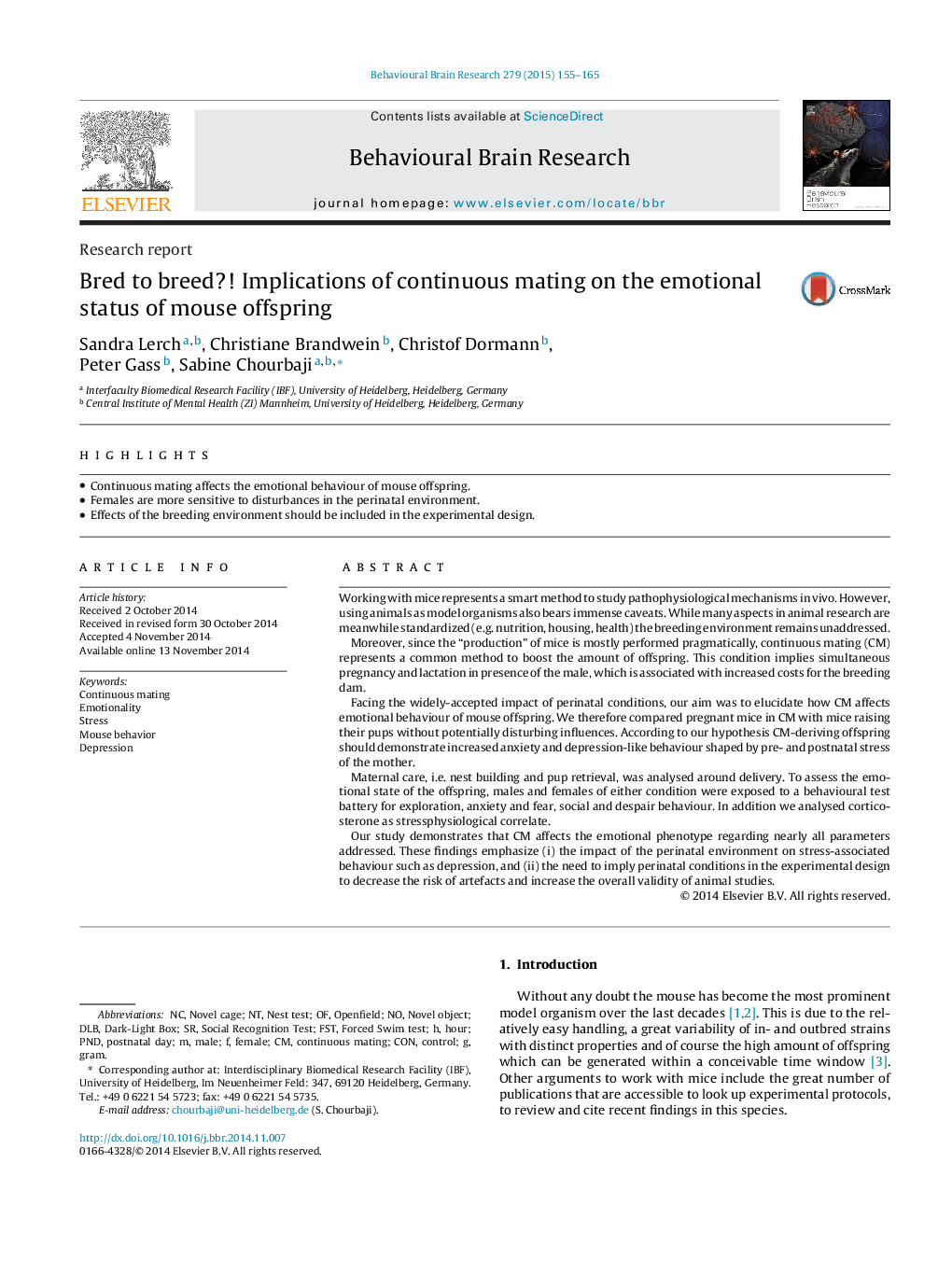| کد مقاله | کد نشریه | سال انتشار | مقاله انگلیسی | نسخه تمام متن |
|---|---|---|---|---|
| 6257343 | 1612953 | 2015 | 11 صفحه PDF | دانلود رایگان |
- Continuous mating affects the emotional behaviour of mouse offspring.
- Females are more sensitive to disturbances in the perinatal environment.
- Effects of the breeding environment should be included in the experimental design.
Working with mice represents a smart method to study pathophysiological mechanisms in vivo. However, using animals as model organisms also bears immense caveats. While many aspects in animal research are meanwhile standardized (e.g. nutrition, housing, health) the breeding environment remains unaddressed.Moreover, since the “production” of mice is mostly performed pragmatically, continuous mating (CM) represents a common method to boost the amount of offspring. This condition implies simultaneous pregnancy and lactation in presence of the male, which is associated with increased costs for the breeding dam.Facing the widely-accepted impact of perinatal conditions, our aim was to elucidate how CM affects emotional behaviour of mouse offspring. We therefore compared pregnant mice in CM with mice raising their pups without potentially disturbing influences. According to our hypothesis CM-deriving offspring should demonstrate increased anxiety and depression-like behaviour shaped by pre- and postnatal stress of the mother.Maternal care, i.e. nest building and pup retrieval, was analysed around delivery. To assess the emotional state of the offspring, males and females of either condition were exposed to a behavioural test battery for exploration, anxiety and fear, social and despair behaviour. In addition we analysed corticosterone as stressphysiological correlate.Our study demonstrates that CM affects the emotional phenotype regarding nearly all parameters addressed. These findings emphasize (i) the impact of the perinatal environment on stress-associated behaviour such as depression, and (ii) the need to imply perinatal conditions in the experimental design to decrease the risk of artefacts and increase the overall validity of animal studies.
Journal: Behavioural Brain Research - Volume 279, 15 February 2015, Pages 155-165
